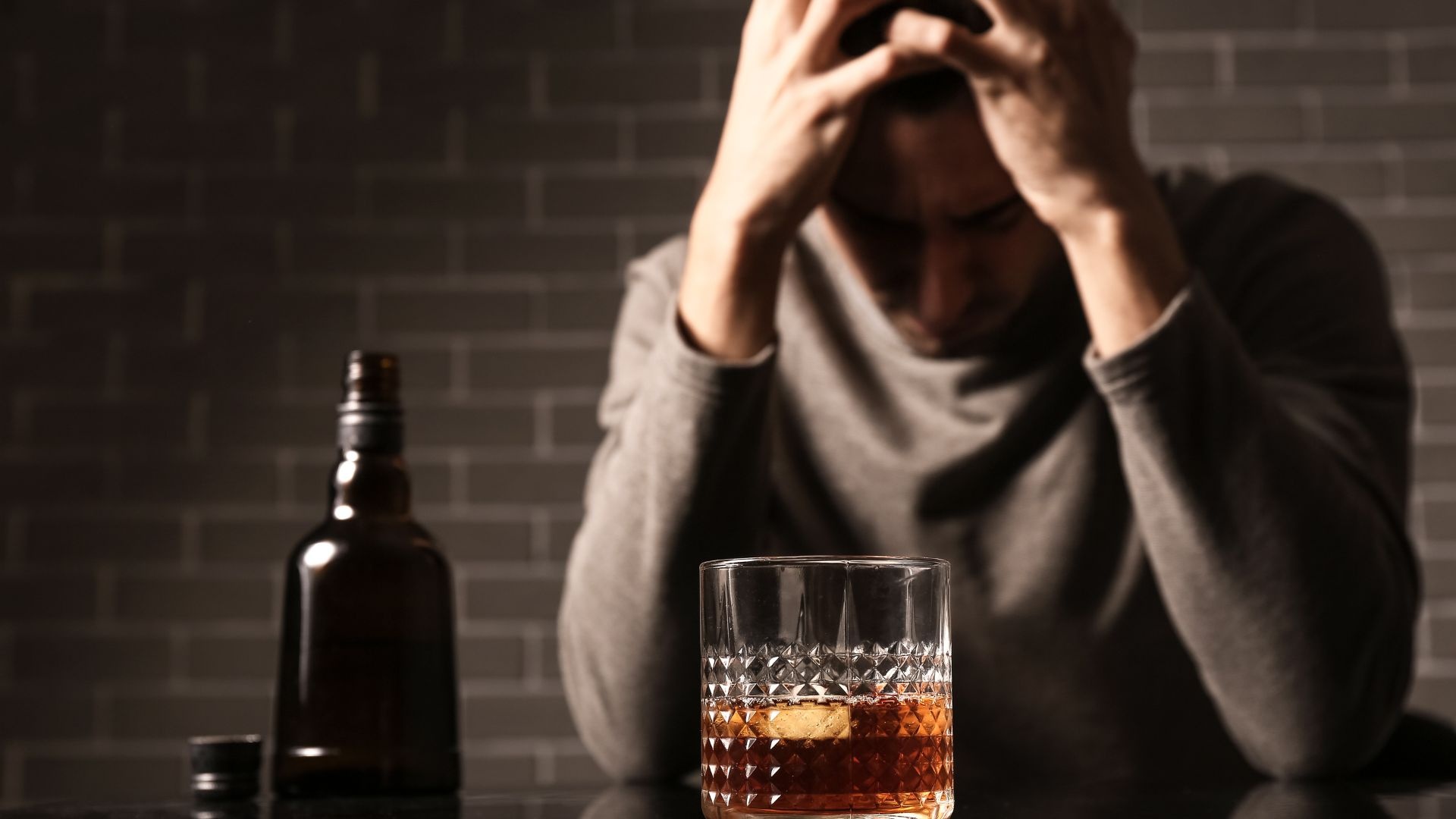Panic Attacks During Alcohol Withdrawal


Wondering can alcohol withdrawal cause panic attacks? Learn the connection, what symptoms to watch for, and how to find effective treatment and long-term relief.
Alcohol withdrawal is more than just a physical challenge—it can trigger intense psychological effects, including severe anxiety and panic attacks. If you or a loved one is asking, can alcohol withdrawal cause panic attacks, the answer is yes. These episodes can feel overwhelming and frightening, especially without the right support.
At The Forge Recovery Center, we understand how closely addiction and mental health are intertwined. Knowing what to expect and how to respond during withdrawal can make the difference between relapse and recovery. In this article, we will explore why panic attacks occur and how to treat them effectively.
Understanding Alcohol Withdrawal

Alcohol withdrawal occurs when someone who has been drinking heavily or regularly stops or significantly reduces their intake. Because alcohol depresses the central nervous system, the body adapts to its presence. When that alcohol is suddenly removed, the brain struggles to recalibrate, often resulting in a range of uncomfortable and sometimes dangerous symptoms.
Stages of Alcohol Withdrawal
Alcohol withdrawal typically happens in three stages:
Mild (6–12 hours after last drink): Symptoms may include anxiety, headache, insomnia, nausea, and shaky hands.
Moderate (12–48 hours): You might experience increased heart rate, high blood pressure, confusion, sweating, and intensified anxiety.
Severe (48–72 hours): This stage may include hallucinations, seizures, or a life-threatening condition called delirium tremens (DTs).
Common Symptoms
Anxiety and irritability
Restlessness and sleep disturbances
Hand tremors and sweating
Nausea or vomiting
Elevated heart rate or blood pressure
Panic attacks in more severe cases
The psychological symptoms—especially anxiety and panic—can feel just as debilitating as the physical ones. For individuals with a history of mental health challenges, withdrawal may further intensify existing conditions.
Timeline of Symptoms
6–12 hours: Mild symptoms begin
12–24 hours: Symptoms worsen; risk of hallucinations starts
24–72 hours: Peak severity for most people
After 72 hours: Symptoms often begin to subside, but anxiety and panic can linger for days or weeks without proper care
Understanding this process helps you prepare and seek the right help. At The Forge Recovery Center, we ensure alcohol withdrawal is managed safely through personalized, medically informed care.
The Link Between Alcohol Withdrawal and Panic Attacks

Many people are surprised to learn that alcohol withdrawal can do more than cause shakes or nausea—it can trigger full-blown panic attacks. These are sudden, intense episodes of fear or discomfort, often accompanied by chest tightness, rapid heartbeat, shortness of breath, and a sense of impending doom. But why do they happen during withdrawal?
How Withdrawal Triggers Panic Attacks
Alcohol works as a depressant, slowing down brain activity and dampening the body’s stress response. When you stop drinking, the central nervous system suddenly rebounds—your brain becomes overstimulated, and the natural calming effect of alcohol disappears. This can cause your anxiety to spike, sometimes escalating into panic attacks.
For people already prone to anxiety or panic disorders, withdrawal acts as an amplifier. Even those with no prior history of panic can suddenly find themselves overwhelmed by uncontrollable fear and physical symptoms.
GABA, Glutamate, and the Panic Response
Two key neurotransmitters are at the heart of this issue:
GABA (gamma-aminobutyric acid): A calming chemical that alcohol boosts.
Glutamate: A stimulating neurotransmitter that alcohol suppresses.
Over time, your brain adjusts to constant alcohol use by reducing GABA production and increasing glutamate activity. When alcohol is removed, you're left with too little GABA and too much glutamate—creating a state of hyper-excitability that primes the body for panic attacks.
Chronic Alcohol Use Disrupts Stress Regulation
Long-term drinking alters the brain’s ability to manage stress even after detox. This imbalance can keep anxiety and panic lingering for weeks or months into recovery. Without professional support, the fear and discomfort can feel unmanageable.
At The Forge Recovery Center, we recognize that panic during withdrawal is more than a symptom—it’s a serious challenge that needs targeted, compassionate care.
Are You Struggling with Mental Health or Addiction?
We Can Help. Call Us Now!
CALL: 877-839-1772
Risk Factors for Panic Attacks During Withdrawal
Not everyone who goes through alcohol withdrawal will experience panic attacks—but for some, the risk is significantly higher. Understanding the factors that increase vulnerability can help you or your loved one prepare for a safer and more supported recovery process.
1. Pre-Existing Anxiety or Panic Disorders
If you already live with generalized anxiety disorder, panic disorder, or another mental health condition, withdrawal can magnify those symptoms. When alcohol is no longer suppressing the nervous system, the underlying anxiety often resurfaces more intensely. This rebound effect can lead to panic attacks that feel overwhelming or even life-threatening.
2. Severity and Duration of Alcohol Use
The longer and more heavily someone has been drinking, the more their brain has adapted to the presence of alcohol. Sudden withdrawal from high levels of consumption can cause a more intense chemical imbalance, increasing the chances of severe anxiety and panic attacks. People who have previously experienced withdrawal symptoms are also more likely to experience them again—often more severely.
3. Genetic Predisposition and Personal History
Some individuals are simply more biologically prone to anxiety and panic due to genetic factors. A family history of mental health conditions, trauma, or substance use disorders can all raise the risk. In addition, past experiences—such as traumatic events or adverse childhood experiences—can shape how your brain responds to stress, making withdrawal more psychologically destabilizing.
These risk factors don’t mean panic attacks during withdrawal are inevitable—but they do signal the need for medical supervision and emotional support. At The Forge Recovery Center, we tailor treatment to your personal history and mental health profile, helping you navigate withdrawal safely and build a stronger foundation for long-term healing.
Recognizing Panic Attacks in the Context of Withdrawal

Panic attacks during alcohol withdrawal can be frightening, especially if you’re not sure what’s happening. These episodes often come on suddenly and can feel like a medical emergency. Recognizing the signs early is crucial for getting the right help and avoiding unnecessary fear.
Common Symptoms of Panic Attacks
During withdrawal, panic attacks can manifest with both physical and emotional symptoms, including:
Rapid heartbeat or palpitations
Shortness of breath or a feeling of choking
Dizziness or lightheadedness
Chest pain or tightness
Sweating or chills
Nausea or stomach discomfort
A sense of unreality or detachment from your surroundings
Intense fear, especially the fear of dying or losing control
These symptoms may feel similar to those of a heart attack, which is why many people end up in emergency rooms during their first panic episode.
Anxiety Vs. Panic: What's the Difference?
While anxiety tends to build gradually and persist over time, panic attacks are sudden and peak within minutes. Anxiety during withdrawal may make you feel tense or uneasy throughout the day. Panic attacks, however, hit like a wave—sharp, intense, and often unpredictable.
Being able to differentiate between the two helps both patients and clinicians choose the appropriate treatment strategy.
Why Early Recognition Matters
Left unaddressed, panic attacks can spiral into fear of the attacks themselves, creating a cycle of anticipatory anxiety that worsens your mental health. Early recognition allows you to receive timely medical or therapeutic support, easing the intensity of symptoms and preventing setbacks in your recovery.
At The Forge Recovery Center, we help you identify and manage these symptoms early, offering tools and guidance to navigate panic attacks with confidence and clarity.
Are You Struggling with Mental Health or Addiction?
We Can Help. Call Us Now!
CALL: 877-839-1772
Treatment Approaches

Effective treatment for panic attacks during alcohol withdrawal requires more than just riding out the symptoms—it demands a structured, supportive, and medically informed approach. At The Forge Recovery Center, we provide evidence-based care that addresses both the physical and emotional challenges of withdrawal, helping you recover safely and sustainably.
Medical Detoxification
Withdrawal from alcohol—especially after heavy or long-term use—can be dangerous without medical oversight. Supervised detox ensures your safety by monitoring vital signs, managing symptoms, and preventing complications such as seizures or delirium tremens.
Medications Used to Manage Withdrawal and Panic
Several medications may be used to stabilize symptoms during detox, including:
Benzodiazepines to reduce anxiety and prevent seizures.
Beta-blockers to control rapid heart rate and physical symptoms of panic.
Non-addictive anxiety medications (like hydroxyzine or gabapentin) when appropriate.
These medications help reduce the intensity of panic attacks and support a smoother transition into long-term recovery.
Therapeutic Interventions
Cognitive Behavioral Therapy (CBT)
CBT is a highly effective therapy for both anxiety and panic disorders. It helps you understand the thoughts and triggers that lead to panic, and teaches practical techniques to manage and reduce them. For people in recovery, CBT also addresses negative thinking patterns related to addiction and self-worth.
Mindfulness and Stress-Reduction Techniques
Practices like meditation, deep breathing, grounding exercises, and guided imagery help calm the nervous system. These tools not only reduce panic in the moment but also build long-term resilience against stress and emotional triggers.
Integrated Treatment Plans
Addressing Substance Use and Mental Health Together
Panic attacks during withdrawal are not just withdrawal symptoms—they are signals that deeper emotional issues may be at play. Treating addiction without addressing mental health can leave you vulnerable to relapse.
Personalized Care at The Forge Recovery Center
We offer customized treatment plans that combine medical care, therapy, and holistic support. Whether you need help managing anxiety, healing trauma, or building coping skills, we tailor your recovery journey to your unique needs and background.
At The Forge Recovery Center, we believe that healing is most effective when it treats the whole person—not just the symptoms. Our integrated, compassionate approach gives you the tools to recover fully and reclaim your life.
Struggling With Panic Attacks During Alcohol Withdrawal? We Can Help
Panic attacks during alcohol withdrawal are more than just a side effect—they’re a serious sign that your mind and body need support. Left untreated, they can derail recovery and worsen mental health. At The Forge Recovery Center, we offer medically supervised detox and integrated treatment plans that address both substance use and anxiety. If you or a loved one is experiencing panic during withdrawal, don’t face it alone. We’re here to help you regain control, find calm, and build a life free from addiction. Reach out today—we’re ready when you are.
Are You Struggling with Mental Health or Addiction?
We Can Help. Call Us Now!
CALL: 877-839-1772
Are You Struggling with Mental Health or Addiction?
We Can Help. Call Us Now!
CALL: 877-839-1772





